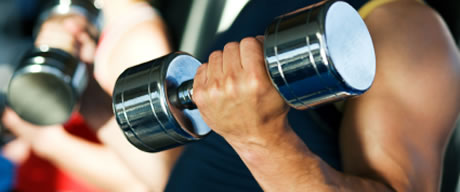We see this a lot in the gym. Someone wants to look better, lose weight, and feel great; but over time their mind gets the best of them, no matter how much motivation we give them. Now, new research shows that confidence and desire are two of the main key factors in losing weight and building muscle.
The study, published in the journal BMC Public Health, shows that psychological factors are the most important barriers to an active lifestyle.
“Our findings highlight the need for health promotion programs to enhance people’s confidence and motivation, as well as providing education on the health benefits of physical activity,” says Sai Yi Pan, leader of a team of researchers from the Public Health Agency of Canada.
The researchers gathered information in telephone interviews from 5,167 Canadians ages 15-79; the participants were asked about their physical activity, their intention to be physically active in the future, perceived health benefits of physical activity, barriers to physical activity, social support, and availability of programs or facilities to be physically active.
The participants were asked how confident they were that they could regularly do a total of 30 minutes of moderate physical activity three or four times a week, and a total of an hour of light exercise daily.
The researchers found that confidence and intention had the most effect on physical activity. They also found self-rated health, perceived health benefits and barriers, facility availability, education level, and family income were related to physical activity.
“Confidence in one’s personal ability to carry out exercise plays a central role in the direction, intensity and persistence of health behavior change,” the researchers write. People who have higher confidence “will perceive fewer barriers to [physical activity], or be less influenced by them, and will be more likely to enjoy” exercising.
“The effects of the perceived health benefits, education and family income were more salient to older people, whereas the influence of education was more important to women and the influence of perceived barriers was more salient to women and younger people,” the researchers write.
“This study suggests that [physical activity] promotion strategies should be tailored to enhance people’s confidence” that they are able and fit enough to engage in physical activity, the researchers conclude. If confidence can be enhanced, then people will be more motivated to be active.
Maybe there is something to those ego filled people staring at themselves and flexing in the gym mirrors. It’s possible they know something that hasn’t really been addressed or studied (until now).
Adria Ali
(CES, PES, CPT, BS)


Leave a Reply